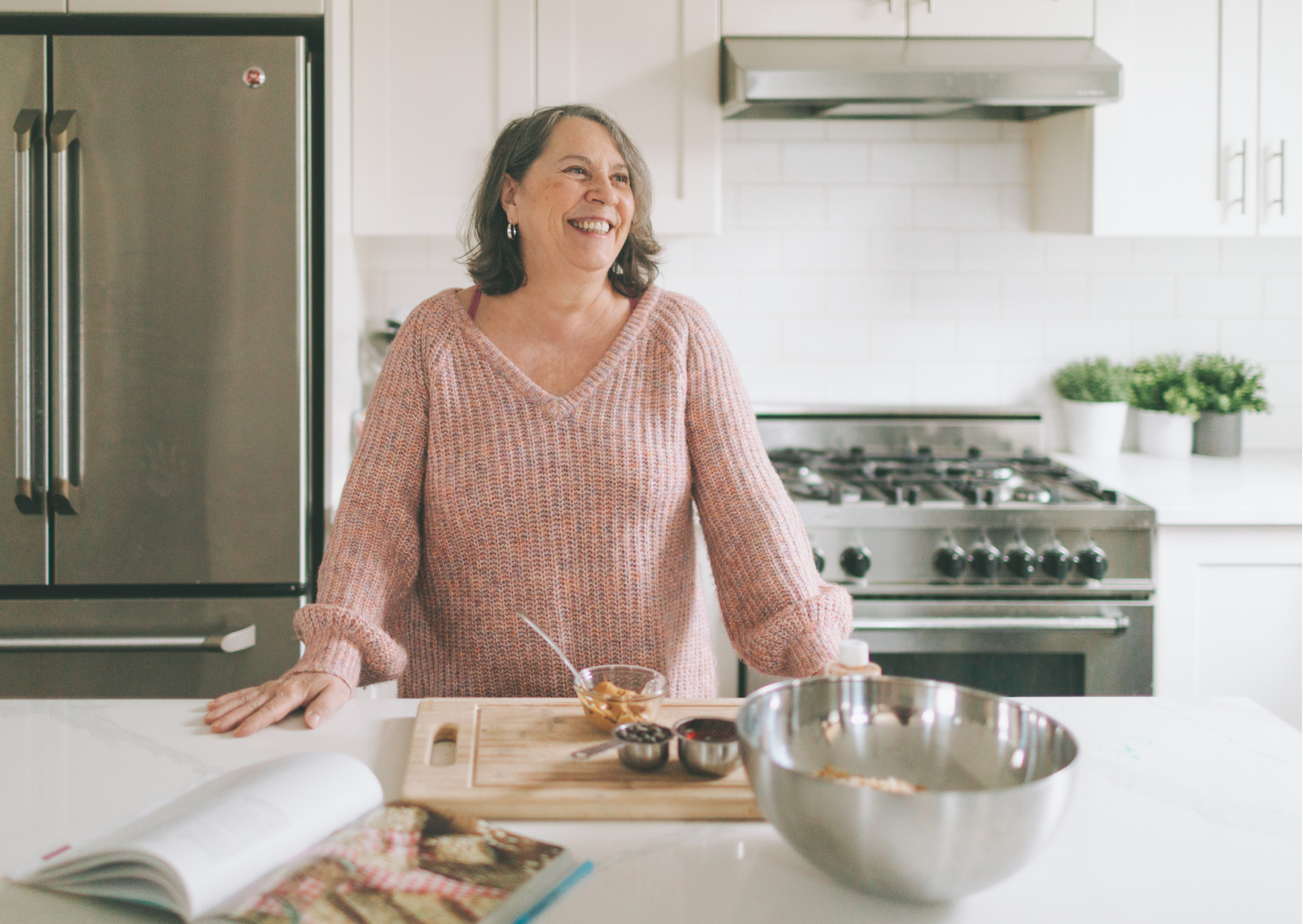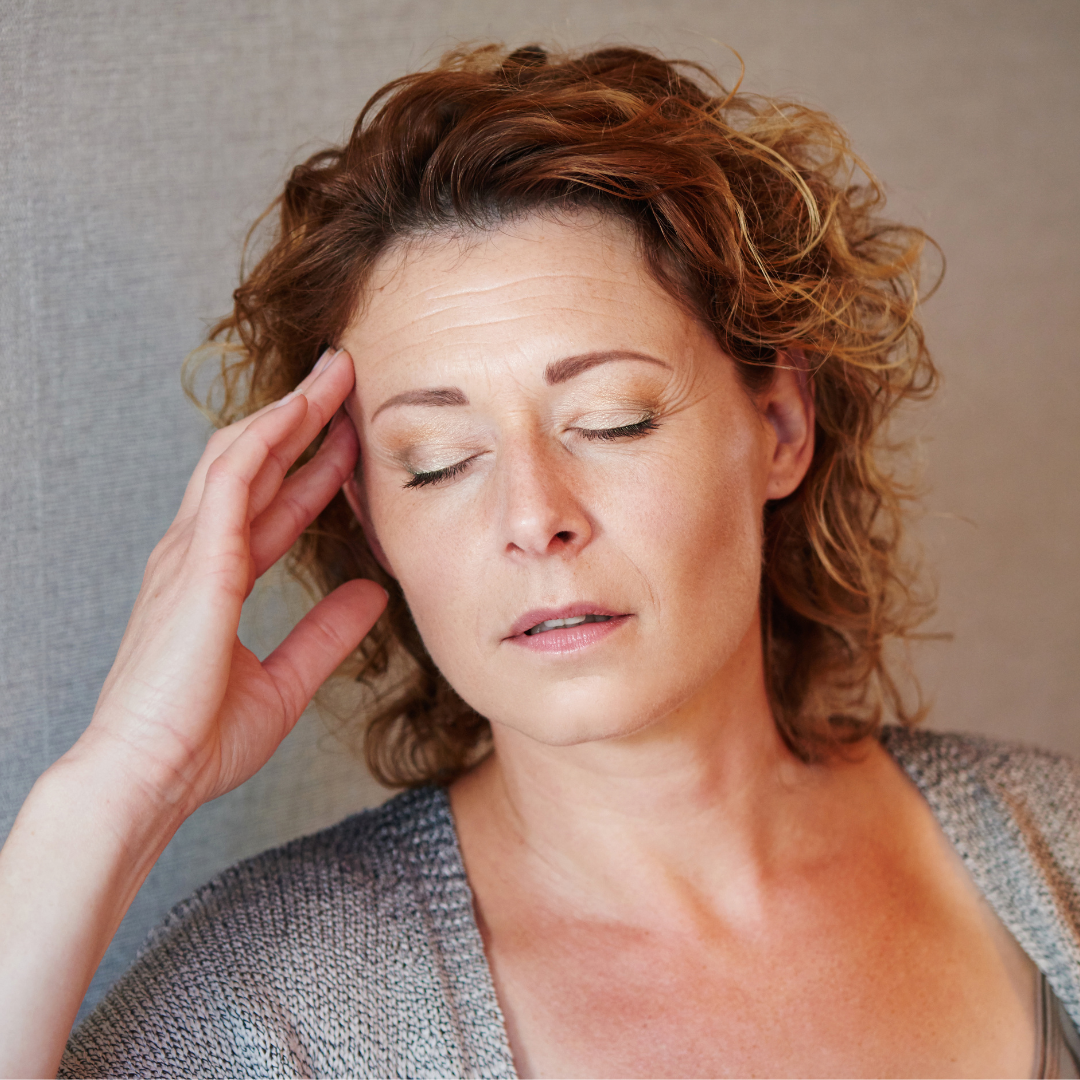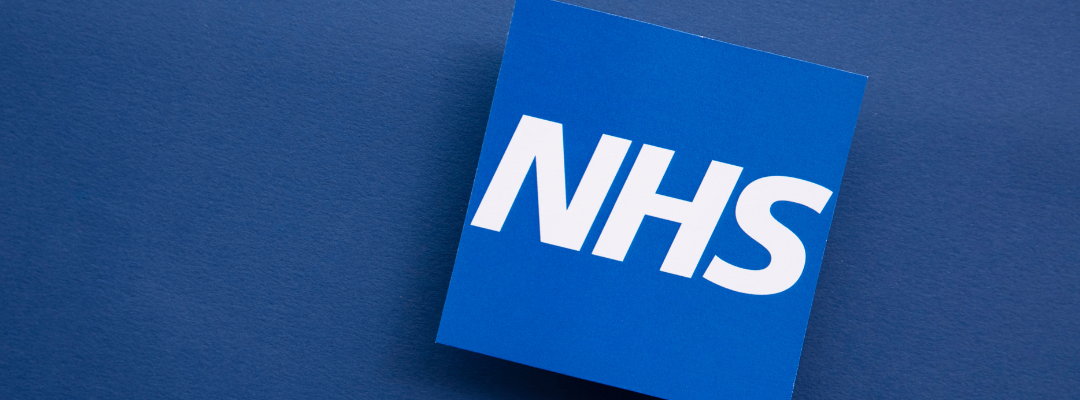
Nutrition and the menopause
Your body needs good nutrition throughout your life- but never more than now, during your peri menopause and menopause.
- You deserve a well-nourished body
- Your bone health is reliant on good nutrition
- Your health risk is reduced when you eat well
- Your weight management is reliant on you eating a nutritious, satisfying diet
- Your risk of cancer can be significantly reduced by the choices you make about what you eat
- Even your mood, emotional health and your risk of Alzheimer’s can be positively impacted by the food you eat
- Quick fixes, fad diets and nutrition gimmicks have no place in your menopause toolkit! Please, please don’t go there
- Your body needs nurturing by regularly eating good food from all the food groups. Peri-menopause and menopause can be challenging enough, the last thing you need is the misery of a fad diet to add to the stress
- So many of you tell us how confused and lost you feel when it comes to nutrition, so we want to start with the basics...
The fundamentals of good nutrition for the Menopause and beyond.
Eat regularly:
Your body needs fuel regularly, though out the day. That means at least three meals- of breakfast, lunch and dinner. A lot of women like to plan in a mid- morning snack and a mid afternoon snack too. Planned snacking can be really helpful at managing mealtime portion control, if you know you tend to overeat at dinner it’s worth trying a mid afternoon snack.
Balance your food groups:
When you put your meals (breakfast, lunch and dinner) together try to make sure half your plate is made up of vegetables, fruit or salad. One quarter should be made up of protein and the reamaining quarter from carbohydrates
Snacks:
Ideally snacks should be made up of two food groups E.G. Carbohydrate + protein, Fruit + protein. Good combos include baby bel cheese with 2 oat cakes, apple and peanut butter, dried fruit and unsalted nuts, banana on 1 slice of toast- you get the picture?
Proteins:
The key to achieving a good balance here is variety. It’s useful to think about your main meals ahead. Plan across the week to have a mix of different proteins:
Day |
Mon |
Tues |
Wed |
Thurs |
Fri |
Sat |
Sun |
Lunch |
Fish |
Poultry |
Red meat |
Vegetarian |
Fish |
Poultry |
Red meat |
Dinner |
Vegetarian |
Fish |
Poultry |
Red meat |
Vegetarian |
Fish |
Poultry |
When choosing your proteins think about the following points as extra detail:
- Red meat - choose lean cuts and extra lean mince. Dry fry when you can.
- Fish - have at least one serving of oily fish like salmon, sardines, trout, mackerel or pilchards.
- Vegetarian - if you eat eggs make sure you include these as well as pulses, nuts, tofu and quorn. Vegetarian diets require even more variety of protein than non-vegetarian diets
Carbohydrates:
Carbohydrates are not the enemy! Your body needs carbs as fuel. Avoiding them is one of the worst nutrition mistakes you can make. We think the confusion about carbohydrates is because they come in different guises.
Simple sugars like syrups, table sugar and treacle- of course these are carbs to eat in small amounts. The “good carbs” are starchy or complex carbs like bread, potatoes, pasta cereals and grains. These provide long lasting energy, fibre and will help to keep you satisfied between meals.
Wholegrain and low glycaemic carbs are your best choices, try to have these at each meal.
- Wholegrain and/or low glycaemic carbs:
- Bread- Granary, Rye, Wholemeal seeded bread
- Potatoes- sweet potatoes, baby new potatoes
- Pasta- dried wholegrain pasta (cooked al dente, with a bite)
- Cereals- oats, no added sugar muesli
- Grains- Brown basmati rice, red rice, cous cous, bulgar wheat, quinoa, barley
Dairy foods and dairy alternatives:
Peri menopause and menopause trigger your bones to lose some of their strength. Now more than ever your body needs the necessary nutrients to support good bone health and maintain bone density.
The two main bone nutrients are calcium and vit D - you should take a vitamin D supplement every day containing 400IU or 10ug Vit D
Most women need 800mg calcium per day to maintain good bone health- some women need more, up to 1200mg/day. The best dietary source of calcium is Milk and dairy foods and you need three servings per day to meet your requirements.
One serving of dairy food is :
- 125g yoghurt
- 200mls milk
- 25g cheese
- A milky pudding like rice pudding or custard
If you prefer to use dairy alternatives like soya, nut, oat or rice “milk” it’s essential you make sure that you are using a calcium-enriched variety.
Fruits and vegetables:
Fruits, vegetables and plant foods need to make up the main part of a healthy diet. The recommended five a day is the minimum you should eat to get all the vitamins and minerals your body needs to be healthy. There’s nothing wrong with having more than five a day.
- A serving is 80g of fruit or veg or 15ml of juice or smoothie- only count juices or smoothies once in a day.
- Try to eat a rainbow of different coloured fruit and veg- the different colours indicate different vitamins and minerals
- Fresh, frozen, dried can canned fruits and vegetables all count towards your daily count.
- Organic fruits and vegetables don’t contain more vitamins and minerals than non- organic.
- Budget ranges or wonky veg contain just as many vitamins and minerals as premium range fruits and vegetables.
Drinks and fluids:
Maintaining good hydration is as important as eating well. Most fluids count towards your intake, you don’t just have to drink water. The only drinks you can’t to count towards your fluid intake are alcohol, fruit juices and smoothies.
You can check if you’re hydrated enough by having a look at your urine when you go the bathroom. If your pee is a very pale white wine colour you are well hydrated. If it’s darker than that you’d do well to drink a little more.
There is some evidence that caffeine and alcohol can make hot flushes worse. If you’re bothered by hot flushes limit tea and coffee to 1-2 cups per day or use decaffeinated varieties. Make sure you keep your alcohol intake within safe limits- no more than 2-3 units per day or even try avoiding altogether for a short time to see if that helps.
Other special foods or supplements you need:
The only supplement you need to take is a vitamin D daily supplement containing 400IU or 10ug vitamin D.
There are a wide range of supplements targeted at menopausal women but there is very limited evidence to support their effectiveness.
Some women find including more plant oestrogens or phytoestrogens in their diet helps to reduce to frequency or severity of hot flushes.
You need to east 2-3 servings of plant oestrogen-rich food like soya every day for 2-3 months to see the full potential benefits. The best results appear to be seen in women in the 40s.
For more blogs like this:
www.harleystathome.com | Instagram @harleystreetathomemenopause
Facebook: Search Harley Street at Home: Diagnosis, Symptoms & Treatments or Harley St at Home: Lifestyle, Self-Care and Lifestyle to join our private community



